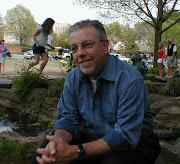
Dear friends in Christ,
As I write this article, Ash Wednesday is still on the horizon and I am preparing my sermon series for Lent. As you read it, Lent has already begun and I hope you are following our “Meditations on the Seven Last Words of Christ” series. In the Gospel accounts of Jesus’ death on the cross, we listen to Jesus speak to us as he takes his final breath. In these precious words, we find not only anguish but also hope that can only be realized in the death and resurrection of the perfect sacrifice – Jesus Christ, the Son of God. What Jesus says has been the topic of countless books and the inspiration for numerous musical works. What Jesus says to us has captivated Christians for centuries as we seek to better understand the sacrifice of Christ on the cross.
This morning I was thinking about what to write for the newsletter and I kept coming back to “it is finished.” It occurs to me that these three words hold the key to our understanding of what Calvary means and where we stand at the foot of the cross. Jesus is not simply stating that his life is nearly over, nor is he commenting on the fact that his earthly ministry is through; I believe that he is telling us that the work of salvation – “it” – is now complete in His death on the cross. Jesus really is saying that the whole point of his life has been achieved in this sacrifice. This is the new covenant we talk about when we celebrate Holy Communion. Jesus’ blood is poured out for the forgiveness of sins. “It is finished” marks an ending of one thing and the beginning of another, better thing. God’s will is that Jesus takes all our sin on himself and that his death ends our life of sin and begins our new life as the Body of Christ.
I’ve recently had the pleasure of leading a Bible study group at New Hope treatment center, as well as our church’s study group on the subject of our covenant with God. In both of these settings I find the recurring theme of God’s forgiveness playing a vital role in our lives. We humans tend to be a self-centered bunch and we frequently step off the path that God has laid out for us. Too often we don’t recognize our missteps until they cause us or someone else a lot of pain. Suddenly we realize that we need God’s forgiveness and we seek it. Our humanness also tends to lead us to believe that there comes a point in our lives when we are no longer deserving of God’s forgiveness; we begin to believe that we have done too much, we have gone too far, or we are simply too bad to even ask for or expect God to welcome us back with open arms. “It is finished,” tells us that this simply is not the case.
The work of saving us from ourselves – from our sin – has already been accomplished in Jesus Christ; nothing we do can separate us from the love of God. We don’t need to earn our way back into God’s good graces – Jesus has already done it for us. We don’t need to fear that God will refuse to forgive us – Jesus has already guaranteed our forgiveness. “It is finished” may be the most hope-filled sentence in history. Because Jesus went to the cross, suffered, died, and rose again, we can go to God knowing that we are able to turn our backs on whatever sin we may have committed and receive God’s forgiveness, love, and grace. We don’t have to keep beating ourselves up for whatever we may have done to hurt ourselves or another person; that work has already been accomplished. Do we need to turn away from our sin? – Yes. Do we need to forgive ourselves? – Yes. Do we need to live our lives with the intention of doing better? – Yes. Do we need to be sorry for what we’ve done? – Yes. Do we need to keep beating our breasts and bemoaning our sinfulness and avoiding being in a healthy relationship with God and with the church? – Absolutely not! The work of salvation is accomplished in Christ Jesus; we need to accept the grace provided in that accomplishment and continue to move forward into a stronger relationship with God and with one another.
The hardest part is finished, but our part isn’t a “walk in the park” either. It takes effort and humility to turn away from our desire and turn toward God’s will. It means releasing our self-centered focus in exchange for eternal life.





